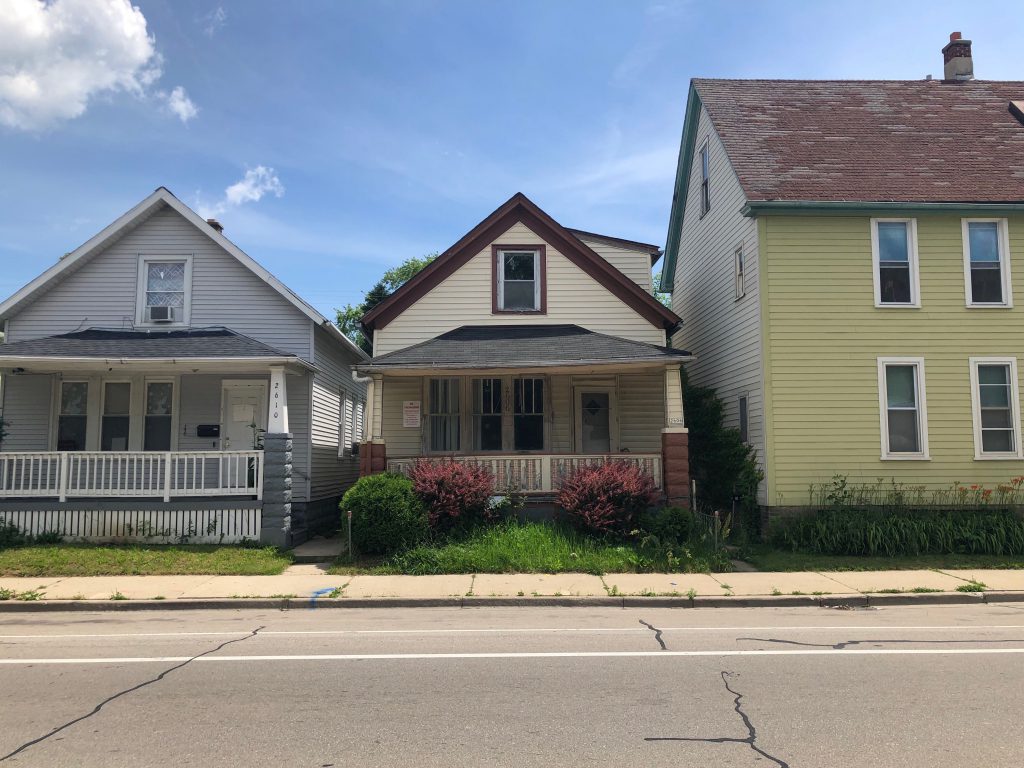Topic(s): News
Headlines: The latest on vacant, abandoned, and deteriorated properties – July 12, 2019
July 12, 2019

This is our twice-monthly round-up of news stories covering challenges related to vacant, abandoned, and deteriorated properties — and how communities are transforming these properties into assets. (The headlines are for informational purposes only; inclusion does not indicate endorsement.) If you’d like to get this round-up in your inbox, join our email list!

The University District and Sherwood Forest in Detroit, Michigan. (Credit: Bill Walsh, flickr, 2012)
National
Pop-up parks lead to more biodiversity in cities, study finds
“Pop-up parks do not replace their larger counterparts, but they are a relatively low-cost way to add green space to vacant or underutilized spaces. Cities around the world and U.S. have done this: Budapest, Hungary, Philadelphia, San Francisco.”
Adina Solomon | Next City | July 3, 2019
The government created housing segregation. Here’s how the government can end it.
“[A]merica needs strong policies to counter the legacy of generations of racial discrimination in housing; contemporary residential racial discrimination; contemporary residential economic discrimination that disproportionately hurts African Americans; and the re-segregating effects of displacement that can come with gentrification.”
Richard D. Kahlenberg and Kimberly Quick | The American Prospect | July 2, 2019
How community development lenders work around the legacy of redlining
“The lender, IFF, is a nonprofit itself, and it lends only to other nonprofits. It was built to leave appraisals out of the equation, giving it the ability to help community-based organizations like Ruth Ellis Center expand to meet needs right where they are in historically redlined places like Highland Park.”
Oscar Perry Abello | Next City | July 2, 2019
Florida
Op-Ed: Vacant land in Miami-Dade could help ease affordable-housing crisis
“While not every parcel of this land is viable for development, there are significant opportunities to aggregate land owned by different jurisdictions and leverage new models for creating long-term affordable housing, such as the South Florida Community Land Trust.”
Ines Hernandez and Robin F. Bachin | Miami Herald | July 1, 2019
Illinois
‘It’s totally unfair’: Chicago, where the rich live 30 years longer than the poor
“‘There’s a concept that is increasingly being understood, that your zip code has as much to do with your health as your genetic code,’ said Dr. Marc Gourevitch…Another way to look at that is that your zip code shouldn’t determine whether you get to see your grandkids. And at some level, that’s how I see and feel about these kinds of data. It’s shocking.'”
Jamiles Lartey | The Guardian | June 23, 2019
Louisiana
New law could make it easier to purchase blighted properties
“‘We’ve said you have to follow due diligence in trying to notify these people, but if there is someone who you absolutely can’t find, we’re not going to let that hold our community back. That’s a real drain and they’re not productive, and when you talk about thousands of properties, you’re also talking about thousands of vacant buildings that become kind of crime hot spots,’ said [Logan] Anderson.”
Donovan Jackson | WAFB 9 | July 9, 2019
South Carolina
Charleston County launching a special legal push to try to reduce evictions
“They settled on creating a new kind of court, specifically one set up to help tenants make their case. It’s expected to launch this fall. ‘This is not an anti-landlord movement,’ [Jeff] Yungman said. ‘This is a pro access to justice issue.'”
Robert Behre | The Post and Courier | July 8, 2019
And, Lastly, a Blight Bright Spot!
MATC program would redevelop homes
“The idea, born out of Reclaiming Vacant Properties Conference held in Milwaukee in 2018, uses an approach whereby the city sells vacant homes for $1 to an affiliate of JCP Construction. The growing firm would coordinate the renovation work. MATC students, supervised by professors, would rehab the homes.”
Jeramey Jannene | Urban Milwaukee | July 8, 2019
Subscribe to join 14,000 community development leaders getting the latest resources from top experts on vacant property revitalization.

